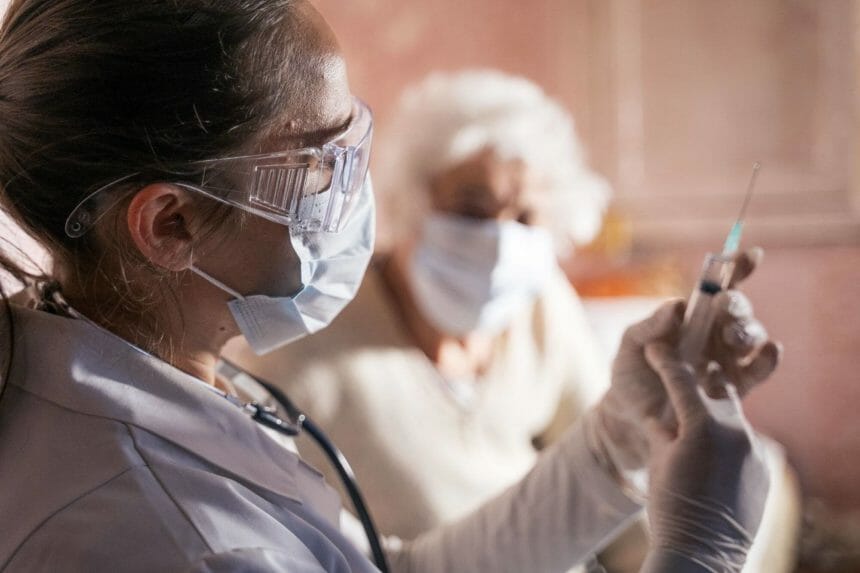
Some 56% of seniors say they still haven’t received the COVID-19 vaccine, according to a new survey about the pandemic. It is a finding that both surprises and disappoints the CEO of Towson, MD-based Senior Helpers, a national home care company that conducted the survey.
“We communicate with our clients that they need to get the vaccine, We can’t be more adamant with families that it’s not a political point, it’s a medical point,” Senior Helpers CEO Peter Ross told McKnight’s Home Care Daily.

The survey also found that 72% said they felt safer and more comfortable seeing friends and family vaccinated, even though many hadn’t been vaccinated themselves. Senior Helpers polled 1,000 people 65 and older for the Seniors: One Year in Quarantine survey.
According to the Centers for Disease Control (CDC), just under 40% of Americans 65 and older are fully vaccinated, compared to roughly 12% of the overall population.
Ross said the survey didn’t uncover whether seniors didn’t want to get the vaccine or whether they were having trouble accessing it. There have been barriers getting seniors vaccinated, including navigating online reservation systems and transportation issues.
Senior Helpers provides home care services to about 13,000 clients in 300 cities across the U.S. Ross said his company commissioned the survey to gain insight into seniors’ attitudes about the pandemic and to help his staff better understand how those attitudes might affect their work in the field.
Senior Helpers isn’t mandating that staff get vaccinations, but Ross said the vaccine is crucial to ending COVID-19. “Even though we’re using all of the PPE (personal protective equipment) that we put in place after the pandemic started, it’s still a challenge to get all of our clients vaccinated, as well as our people.”
The company found a number positives in its survey: 45% of respondents said they have used telehealth in the past year and 88% said they felt as self-sufficient as they were before the pandemic.




